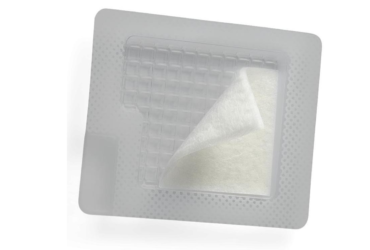
Chronic wounds, those that do not follow a predictable sequence of repair or fail to heal within three months, is a significant burden in the healthcare sector. Diabetes, obesity, and aging populations are noted as factors that increase its prevalence at long-term care facilities. Cellular and tissue-based products (CTPs) offer several advantages over autologous skin grafts for improving the rate of healing of chronic wounds in patients, including diabetic ulcers, venous ulcers, and pressure ulcers. This article will discuss the various types of CTPs and potential benefits. Note that it is a product of research and not intended to serve as clinical literature.
What are Cellular and Tissue-based Products?
Despite providing sufficient coverage for full-thickness wounds, such as surgical and chronic wounds, autologous skin grafts are frequently in short supply, require painful and invasive procedures, may cause significant scarring at the donor site, and transplant rejection is frequent. Cellular and tissue-based products reduce pain and healing times, provide extensive and long-lasting coverage for wounds, and are less intrusive. Engineered skin replacements serve as biologic scaffolds for replicating the structure and biologic functions of healthy skin.
Allografts vs. Xenografts
Allografts are harvested from and transplanted between the same species but from genetically non-identical donors, such as cadaveric skin. Xenografts, on the other hand, are derived from completely different species. Examples include porcine products from pigs, bovine products from cows, and equine-derived CTPs from horses. Expectedly, allografts have better biocompatibility and long-term host acceptance than xenografts but are less readily available. Xenografts are more readily obtained but may exhibit lower biocompatibility and delayed fibroblast proliferation.
Cellular and Tissue-based Products: Types and Derivations
There are many different types of CTPs on the market today. However, they can be categorized into the following:
Human Skin Allograft
Human skin allografts are derived from skin components and tissues bioengineered to prevent transplant rejection. They are extensively used in the treatment of burn injuries and indicated in the management of chronic wounds where they facilitate scaffolding, growth factors, and soft tissue support with rare immunological reactions.
Allogeneic matrix
Allogeneic matrices are CTPs derived from neonatal dermal fibroblasts that have been cultured in-vitro. The most frequent sources include the placenta, umbilical cord, amnion, and chorion. They can provide soft tissue support and re-epithelialization of full-thickness wounds.
Composite Matrix
Composite matrices are extracted from human keratin-producing skin cells and fibroblasts. These CTPs contain active cellular compounds that generate proteins and bioactive compounds that facilitate wound healing and re-epithelialization.
Acellular Dermal Matrix
Acellular dermal matrices (ADM) are the most prominent type of CTPs. They are derived from collagen, cellular remnants, or membranes and closely replicate the characteristics of normal, healthy skin. ADMs aid the wound healing process through the localization and intensification of hormonal or enzymatic activity, including angiogenesis, growth factors, and fibroblast proliferation. The standard is the paste-type ADM (CG Paste).
Considerations for Choosing Cellular and Tissue-based Products
In an article on Podiatry Today, John Steinberg, DPM, FACFAS, a co-director at the Center for Wound Healing at MedStar Georgetown emphasizes the need for preliminary determination of wound etiology before clinicians apply CTPs. Chronic wounds indicated for CTP interventions should include those that have failed to heal after four weeks of treatment after ascertaining wound causes and risk factors.
The ideal CTP should meet all or most of the following requirements:
- Hypoallergenic
- Cost-effective
- Long shelf-life
- Minimal scarring
- Low risk of disease transmission
- Long-term immunologic acceptance
- Supports fibroblast proliferation
- Provides a barrier against bacterial intrusion
Recommended Cellular and Tissue-based Products for Managing Chronic Wounds
According to evidence-based research and recommendations from leading clinicians on Wound Reference, the following CTP types are indicated for use in the treatment of various chronic wounds, injuries, and acute burns:
Venous Ulcers
- Human skin allografts (Grade 2C) plus compression therapy
- Allogeneic matrix (Grade 2B) plus compression therapy
- Composite matrix (Grade 2B) plus compression therapy
- Acellular matrix (Grade 2C) plus compression therapy
Diabetic Foot Ulcers
- Human skin allografts (Grade 2C)
- Allogeneic matrix (Grade 2B)
- Composite matrix (Grade 2B)
- Acellular matrix (Grade 2B)
Cellular and Tissue-based Products: Contraindications
Despite their efficiency in improving the wound healing process, the application of CTPs should be avoided in the following situations:
- Patients exhibiting high sensitivity or allergic reactions to any of the CTP components
- Wounds with active, non-treated infection
- Uncontrolled bleeding at the wound site
- Malignant wounds resulting from cancer
- Patients who do not want to be treated using cellular products derived from other humans or animals.
Detailed comparisons of the efficacy of cellular and tissue-based products over autologous skin grafts are limited in the medical literature. Patients that opt for CTP treatment for acute or chronic wounds must be attended to by competent and licensed physicians that will inform them of the suitability and potential contraindications after ascertaining proper wound etiology and evaluating their medical history.

Tags










.jpg)








